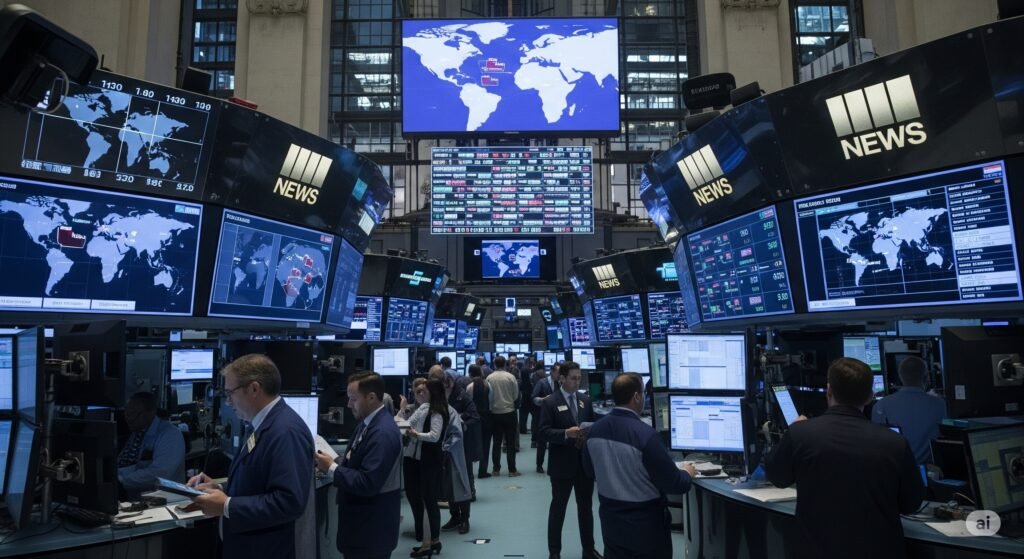Rising tensions in the Middle East rattled Wall Street, causing the Dow and Nasdaq to slide. Defense stocks, however, saw a surge. What’s next for investors?
Geopolitical instability sent a wave of caution through the U.S. stock market recently, leading to a noticeable downturn. Escalating tensions between Israel and Iran became a primary concern for investors, injecting uncertainty into the economic outlook and prompting a flight to safety in certain sectors.
Broad Market Declines
The major U.S. stock indices felt the impact of these global anxieties. Both the Dow Jones Industrial Average and the Nasdaq Composite experienced significant drops, reflecting a broad sell-off as investors reacted to the heightened risk environment. This pullback underscores how global events can quickly translate into volatility within the domestic market, affecting everyday investors’ portfolios.
Defense Stocks Buck the Trend
Interestingly, while the overall market faced headwinds, defense stocks moved in the opposite direction. Shares of companies in the defense sector saw a rally as geopolitical risks increased. This is a common phenomenon, as investors often anticipate increased military spending and demand for defense equipment during times of international conflict and uncertainty.
Factors Influencing the Downturn
Several factors contributed to this market reaction:
- Increased Uncertainty: The escalation of conflict in the Middle East introduces a layer of unpredictability that markets generally dislike. Investors tend to become more risk-averse when geopolitical stability is threatened.
- Potential Economic Impact: Conflicts can disrupt supply chains, impact energy prices, and lead to broader economic instability, all of which can negatively affect corporate earnings and investor sentiment.
- Flight to Safety: In times of crisis, investors often move their capital into perceived safer assets, such as government bonds or more stable sectors, leading to selling pressure in equities.
What This Means for Investors
The recent market dip serves as a reminder of the interconnectedness of global events and the U.S. financial markets. For investors, it’s a good time to:
- Stay Informed: Keep abreast of geopolitical developments and their potential economic implications.
- Review Your Portfolio: Ensure your investment strategy aligns with your risk tolerance, especially in the face of increased market volatility.
- Consider Diversification: A well-diversified portfolio can help mitigate the impact of downturns in specific sectors or asset classes.
- Avoid Panic Selling: Market fluctuations are a normal part of investing. Making impulsive decisions based on short-term news can be detrimental to long-term investment goals.
While the immediate market reaction has been negative, the long-term impact will depend on how the geopolitical situation unfolds. Investors should remain vigilant, stay informed, and maintain a disciplined approach to their investment strategy.









